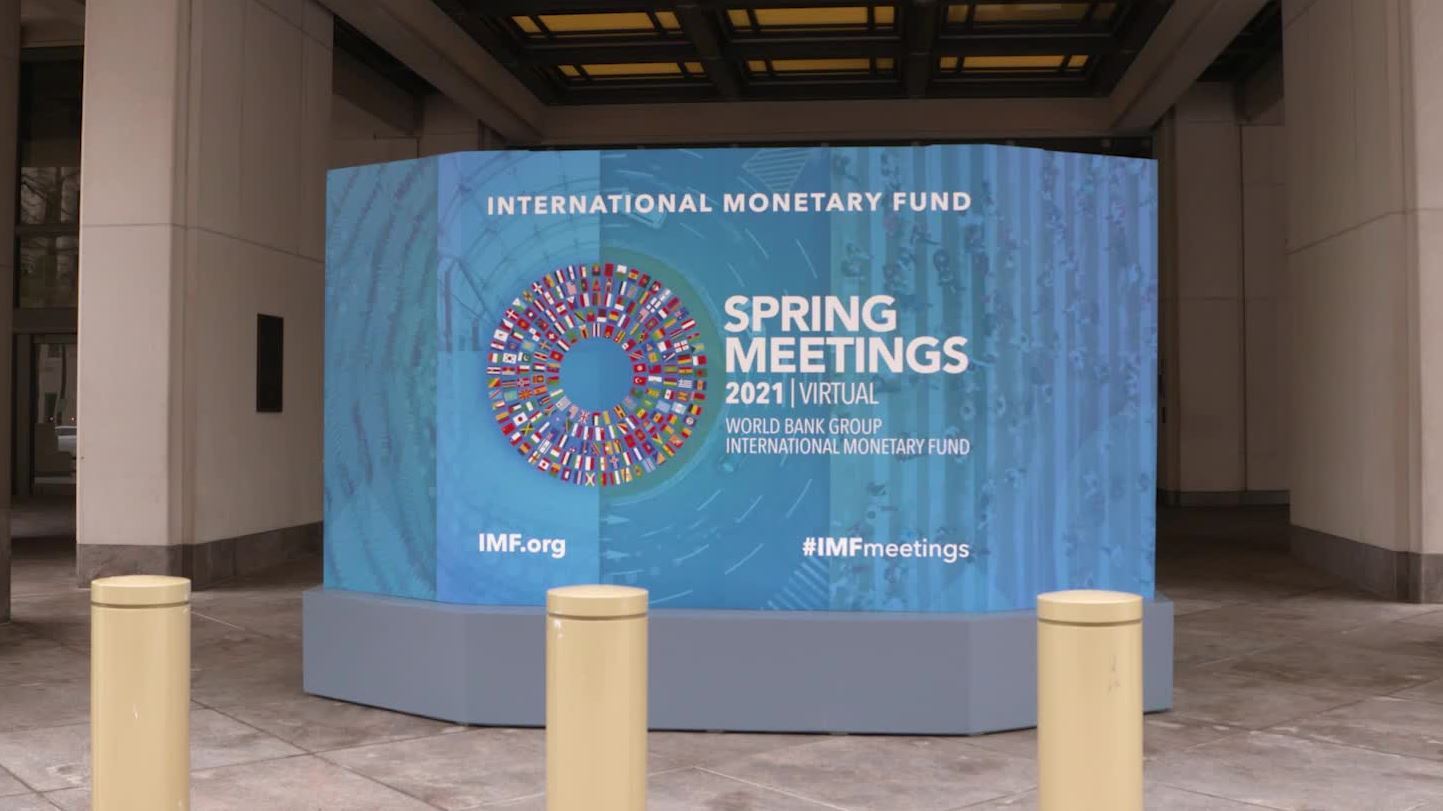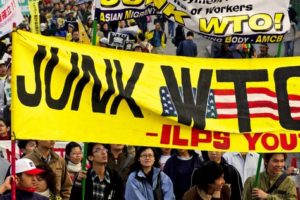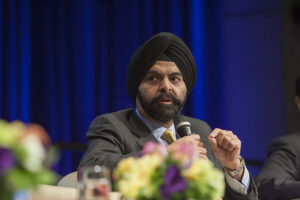IBON International remains highly concerned that the responses and “recovery” agenda of the US-led IMF-WBG continue to be driven by debt, big private finance and the revival of capital accumulation. It means more conditionalities, regressive taxes on the people, and a continuation of corporate-driven approaches.
The April Spring Meetings of the International Monetary Fund (IMF) and the World Bank Group (WBG) open at a time of economic recession, continuing pandemic and the climate crisis. The pandemic has raised the urgent need for robust public healthcare systems and public finance for the people. Debt burdens, rising poverty, and widening inequalities continue to threaten the rights and futures of peoples especially in the global South.
IBON International remains highly concerned that the responses and “recovery” agenda of the US-led IMF-WBG continue to be driven by debt, big private finance and the revival of capital accumulation. These institutions’ responses mean more debt and mere debt suspensions. It means more conditionalities, regressive taxes on the people, and a continuation of corporate-driven approaches. These set countries on trajectories that would not be fit for people’s needs today nor address the structural barriers to their development.
The debt-driven responses further impoverish peoples in the global South. International debt measures are far from adequate and do not constitute cutting the stock of debt burdens, as many Southern countries face debt woes, and countries such as Zambia defaulting in the pandemic context.[i] The IMF in itself has disbursed USD 107 billion of loans to 85 countries in the name of COVID response, with policy conditions called out for pushing austerity and regressive taxes. Relief from payments to the IMF until October 2021 is limited and for the short term. Despite the G20’scommon framework and the extension of the debt service suspension initiative (DSSI) possibly until end-2021, such measures remain inadequate in scale, scope, and is merely delaying payments. And despite the WBG support for the DSSI, they, nor private creditors, have not signalled an intention even just to suspend debt payments.
The IMF in itself has disbursed USD 107 billion of loans to 85 countries in the name of COVID response, with policy conditions called out for pushing austerity and regressive taxes. The World Bank remains aligned to the much-questioned Maximising Finance for Development approach, where private financing, Public-Private Partnerships, and neoliberal reforms would be priorities in the Bank’s “development” interventions.
We are also concerned that these institutions’ long-term approaches, despite appeals to a need for being “green, resilient, inclusive,” are premised on the revival of capital accumulation that would especially benefit corporate giants and those with market power. Overall, the response especially of the World Bank remains aligned to the much-questioned Maximising Finance for Development approach, where private financing, Public-Private Partnerships, and neoliberal reforms would be priorities in the Bank’s “development” interventions.
The “recovery” approaches rest on such foundations from old, damaging policy directions. It is concerning that the work of the International Finance Corporation, the private sector arm of the WBG, promotes private business interests in healthcare through its Global Health Value Chain programme. Moreover, the Bank’s rhetoric today on “human capital” for “inclusion” subsumes education and healthcare as mere means to the end of economic growth, instead of treating the delivery of social services as basic rights that should be guaranteed for people’s needs.
World Bank moves to align its financing to the Paris Agreement does not phase out support for fossil fuel projects. And without moving beyond the private finance-driven approach, this could mean more projects that are nominally “green” but present barriers to rights of Indigenous Peoples and peasants in the global South. Work on digitalising firms for “resilience,” which is silent on the existing market power of corporate giants that have captured global production networks, would unlikely benefit the small enterprises in the global South. At most, it would integrate them into TNC-dominated production. At worst, it would facilitate corporate production in the global South with its track record of race-to-the-bottom wages and exploitation of workers.
Thus, such rhetoric on “recovery” threatens to be a repackaging of pre-pandemic policies amid today’s crises. It is a tweaking of business-as-usual amid growing discontent and protests against the economic policies that have ravaging implications on economic and political inequalities. The IMF-WBG is aware of how the pandemic exposed such policies but is silent on their responsibility for the neoliberal decades.
Pandemic responses and the way forward for the world economy require putting working people’s rights at the centre, especially of working women who have borne the impacts, and the rights to healthcare and other social services. Development financing should prioritise people’s needs, from an ever-urgent agenda cancelling Southern countries’ debts to all creditors, to delivering ambitious grant finance and long-running commitments on flows of official development assistance.
IBON International asserts that the ambition necessary for people-centred, transformative, and sustainable development today requires moving beyond current dominant proposals. The risk of a “lost decade” for development is high if there would be no fundamental, deep shifts beyond the neoliberal policies that have shaped development finance and policies in the global South, which have benefitted monopoly capitalist corporations at the expense of people’s rights.
Pandemic responses and the way forward for the world economy require putting working people’s rights at the centre, especially of working women who have borne the impacts, and the rights to healthcare and other social services. Development financing should prioritise people’s needs, from an ever-urgent agenda cancelling Southern countries’ debts to all creditors, to delivering ambitious grant finance and long-running commitments on flows of official development assistance. Instead of conditionalities for austerity and regressive taxes, progressive taxation for TNCs and the wealthy are key.
We recognise that people’s organisations, movements and civil society in the global South have crucial roles in reclaiming rights and sovereignty for their development paths. History has shown certain victories for people’s assertions of their rights in relation to the IMF and the WBG—from Indigenous Peoples resisting development aggression in the Philippines to working peoples resisting IMF austerity around the world. Today,the stakes of the people’s future are too high to be largely shaped in the meeting rooms of international finance institutions, elite-led states, and capital.###
[i]https://www.reuters.com/article/zambia-debt/update-4-zambia-will-miss-eurobond-payment-setting-stage-for-default-idUKL1N2HZ0R1




